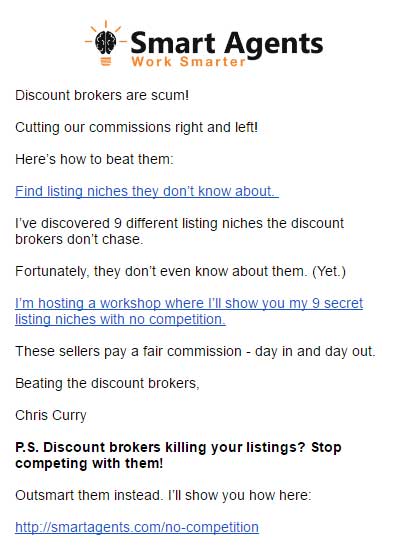I’ve been looking at the numbers lately. The one that keeps coming up is 30. We have 30 offices in coaching right now. We usually draw about 30 offices to the Wednesday Power Hour calls. Our annual Success Summits have drawn about 30 offices each of the last few years. That begs the question:
Where are the other 70?
When you join a franchised organization, you have a choice about how you will interact. You don’t have to do much more than correctly use the brand and operating system, pay your royalties and don’t break the law. The opportunity to become involved, to learn and grow, is just that: an opportunity.
But, we’ve found that those who take advantage of the opportunity to interact are the ones who grow and thrive in the Help-U-Sell family. The 30 above – and there are variations in each of those lists – are the offices that show the greatest percentage growth in production year over year.
I’m not going to preach too much here. Truth is: there are about 30 regular readers of this blog and they tend to be in the lists above, too. In other words: I’m probably preaching to the choir! Still, let me remind you of the opportunities you have to engage with the Help-U-Sell Family, opportunities that have proven to have a positive effect on your bottom line.
Power Hour: Second and Fourth Wednesday each month at Noon Eastern time (9am Pacific). One hour of strategies, best practices, and what’s new. Really: not to be missed. Here is a registration link: https://attendee.gotowebinar.com/register/813923762165244931
Webinar ID: 685-513-379
Help-U-Sell Facebook Family page: our own private conversation. Only Help-U-Sell people can get access, so we speak freely about our challenges and successes. If you need something or want to share something that’s working, this is the place for you! But you must be a member: request that on this page: https://www.facebook.com/groups/helpusellfamily/
Success Summit 2017: December 5 – 7 at the Golden Nugget hotel in downtown Las Vegas. Half Day – Full Day – Half Day. Get the scoop on new programs and initiatives, automated and predictive marketing as well as best practices, networking, social time and overall excitement! This is always a GREAT MEETING! Register here: https://connect.helpusell.com/help-u-sell-success-summit-registration/
Help-U-Sell Connect: Our internal newsletter. Meet top producers, get reminded of deadlines and marketing intiatives. All the news you want to read in a quick and easy format. https://connect.helpusell.com/
Coaching Groups: Currently we have 7 groups running. Members meet once a week for an hour and help brokers stay focued on what’s most important as they juggle the many commitments that drive their businesses. These are real, gritty, how-to meetings with lots of interaction between members. We match new members to the appropriate group based on production, stage of growth and goals. Don’t operate in a vacuum! Join a Coaching Group by contacting James Dingman or John Powell.
There’s more: things like this Blog, support@helpusell.com for quick help with tech issues (or anything else), formal online training classes, one-on-one help and consultation on operational and tech issues, and so on. But I think the most powerful opportunities are above. You owe it to yourself and your business to PLUG IN. Make the commitment today by clicking on any or all of the links above.

